An unprecedented project was recently launched in Bhutan to improve the people’s health and wellbeing through digital technology, and to contribute to economic and social prosperity. The project will utilize health and health-related data to improve the treatment and prevention of non-communicable diseases (NCDs) such as cancer and diabetes, and to improve regular healthcare services . JICA will work with digital technology partners to improve the quality of life in a variety of areas, while promoting industry development.
In the following article, the project and hopes for the future of digital societies is explained in the words of some of the participants: Bhutanese government officials who visited Japan, a representative from Accenture (the consulting firm responsible for managing the project), and a JICA representative.
Interview Participants
Pemba Wangchuk
Acting Secretary, Ministry of Health, Bhutan
Wangchuk has been with the Ministry of Health since 1995. He has also served as the Governor for various regions of Bhutan and as the Director General for the Road Safety and Transport Authority, Ministry of Information and Communications and also for the Department of Traditional Medicine (Ministry of Health) prior to his appointment as the Acting Secretary for the Ministry of Health.
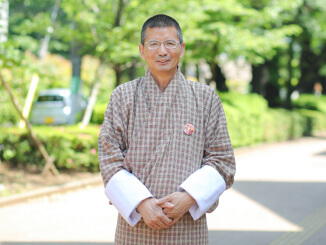
Jigme Tenzing
Acting Secretary, GovTech Agency, Bhutan
Tenzing has been with the Ministry of Information and Communications since 2002 and served as the Director of the Department of Information Technology and Telecom, Ministry of Information and Communications. With the Government initiative to facilitate rapid ICT uptake in the country, the Department of Information Technology has transitioned to the GovTech Agency since Dec 2022, and he was appointed as the Acting Secretary of GovTech Agency.
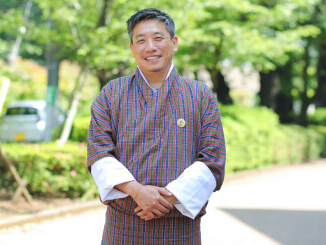
Shigeyuki Fujii
Managing Director, Strategy, Accenture Strategy & Consulting,
Accenture Japan Ltd.
Fujii is responsible for strategy and consulting services mainly in the public service domain. While engaging in strategic planning as a core member of the healthcare field in Smart City Aizuwakamatsu, he has extensive experience and achievements in smart city and healthcare related projects for private companies.
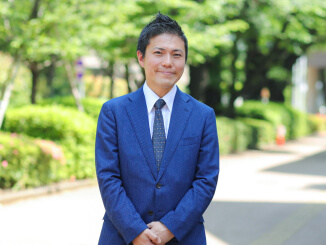
Takuro Asanuma
Office for STI & DX, Governance and Peacebuilding Department, JICA
Asanuma is in charge of JICA's cooperation in digitization projects in developing countries. He has been involved in this Bhutan project from the planning stage.
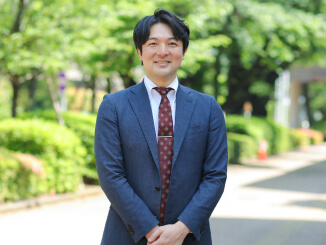
Achieving the project goals: background and situation
Pemba Wangchuk
Bhutan has built a medical service system to protect the health of its people, and everyone currently has access to free medical services. But the country is now at a major crossroad. Along with the rapid economic growth and the lifestyle changes that have taken place, chronic diseases such as cancer, diabetes, cardiovascular and respiratory diseases, and mental health have risen. The situation regarding the population’s health is dramatically changing.
It is imperative to collect accurate data on current health conditions and formulate evidence-based policies to make sure that people can continue to receive appropriate treatment and live healthy lives.
Jigme Tenzing
The GovTech Agency, as the nodal agency responsible for the development of ICT, telecommunication and space is responsible for the country's digital transformation. To support digitization of the health sector, the GovTech Agency in collaboration with the Ministry of Health will work together throughout this project. We feel that this project has the potential to drastically enhance the delivery of health services in Bhutan. Most importantly, through the project we are very hopeful that a bio-bank could be established so that the capacity of our people in genome sequencing is enhanced.
In addition to this project, the GovTech Agency will work with private companies with experience in digital technology not only in the health sector, but also in various other fields in an effort to digitalize the entire country. We will do this while also addressing issues related to data misuse and privacy.
Currently, the GovTech agency is working on developing a data management strategy that would guide the country. Further, we are also revising the ICT Act that would effectively capture the issue of data privacy, security, and confidentiality.
Bhutan is developing excellent human resources due to improvements in education, but the youth unemployment rate is increasing due to insufficient employment opportunities. The outflow of talent to other countries is also an issue. New businesses created through digitization will lead to more attractive employment opportunities for our young people.
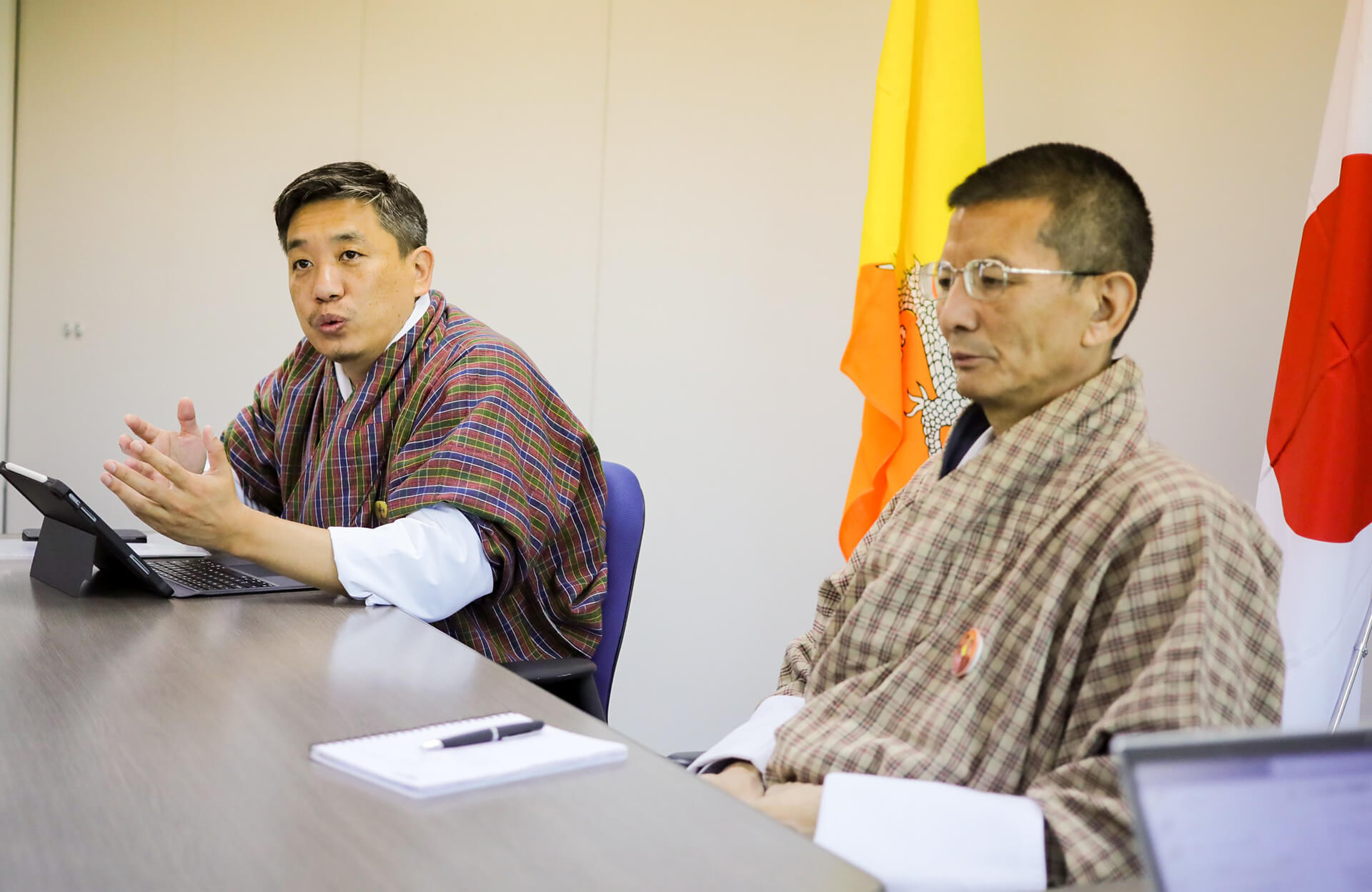
Jigme Tenzing, GovTech Agency, Bhutan(left) Pemba Wangchuk, Ministry of Health, Bhutan(right)
Shigeyuki Fujii
I see great potential in the kind of digital society that Bhutan is striving for. We are not only supporting development projects related to international digitalization but are also working with central ministries and agencies such as the Japanese Digital Agency and the Ministry of Health, Labour and Welfare to digitize the country as a whole as well as with local governments and communities throughout the country. In Japan, the existing administrative system that was established in the analog era is very complex, and progress in digitization has been difficult.
Bhutan, on the other hand, is a small country with a population of about 780,000 people with a simple administrative system. Therefore, it is relatively easy to introduce new digital platforms. I believe that small and developing countries like Bhutan will move faster towards a digital society than in developed countries.
Jigme Tenzing
That's right. We can take advantage of the unique characteristics of Bhutan. We are a small country that is agile and can take on new challenges. We have the opportunity to rapidly test new ideas and technologies safely because of the size of our country.
Pemba Wangchuk
We can expect to resolve challenges in the healthcare field while fostering the digital industry. It is an excellent opportunity for Bhutan.
Takuro Asanuma
The project first aims to improve the quality of medical care through accurate evidence-based treatment and advice. We’ll do this by creating an environment that encourages integrated management and utilization of medical and health data. Through the sharing of this data, we hope to promote private healthcare-related industries and create job opportunities.
This is a challenging initiative for JICA. We want to work with Bhutan in building a new model of international cooperation for the digital age—one that supports national development with digital technology and data.
Bhutan is a landlocked country located at the eastern end of the Himalayas. So there is the disadvantage of high logistics costs in terms of trade, something that is essential for economic development. The promotion of new industries using digital technology can help lead to the development of the country. There are many countries facing similar challenges, so we hope to apply this successful model in Bhutan to other developing countries in the future.
A keen interest from Japan’s advanced medical facilities
Pemba Wangchuk
In order to introduce a digital health platform that integrates health data, we are aiming to build a ‘biobank’ that accumulates DNA data and data on specific diseases. We were able to exchange information on biobanks at Tohoku University’s Tohoku Medical Megabank Organization, one of this initiative’s training locations, and it was a very productive visit.
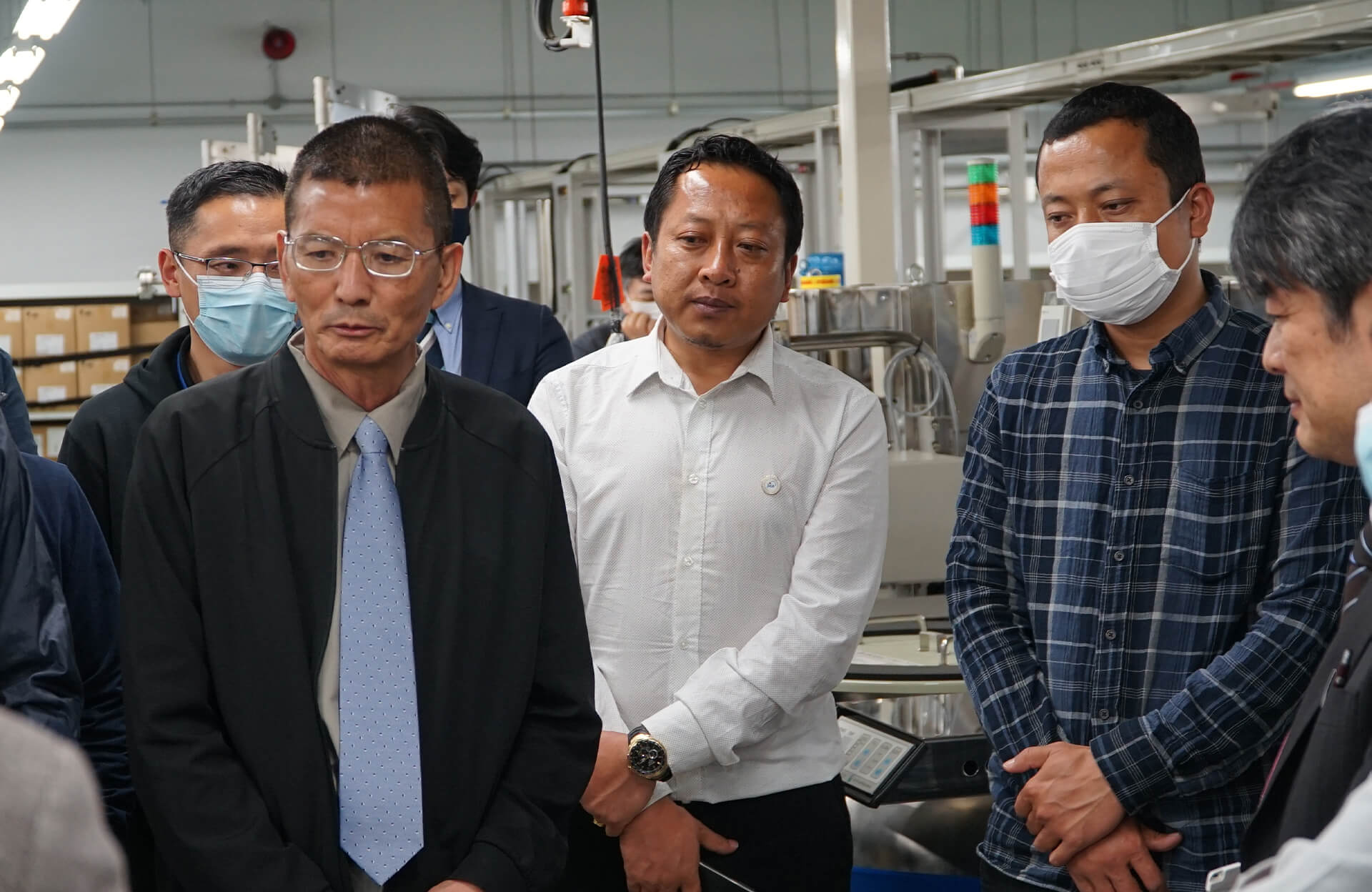
Pemba Wangchuk (far left) and other Bhutanese government officials touring Tohoku University's Tohoku Medical Megabank Organization. Nine officials from Bhutan's Ministry of Health, GovTech Agency, National Statistics Office, Royal Center for Disease Control, and others participated in this training. (Photo courtesy of Tohoku University’s Tohoku Medical Megabank Organization.)
Jigme Tenzing
We learned a lot during the training, including the importance of the procedures to improve the quality of the data collected. We were encouraged by the researchers at each hospital and medical facility we visited. They listened to what we are trying to accomplish in Bhutan, and generously offered us useful advice. This cooperation is a result of the longstanding friendship between Japan and Bhutan. I am truly grateful for the warm welcome we received.
Further, we are very happy to know that Japanese universities like Kyoto, Tohoko and Tokyo are willing to support our journey to digitize the health sector. I feel that these universities are world class and their support in developing bio-bank infrastructure combined with the efforts of homegrown talent in Bhutan would further enhance the very strong human relationship existing between two countries.
Takuro Asanuma
The Japanese are very familiar with Bhutan, where the goal is to create a society that includes a sense of wellbeing, rather than focusing solely on economic growth. Recent years have seen a focus on Gross National Happiness (GNH), a concept similar to wellbeing. It is an important asset in realizing concepts such as using data to index the health of the people.
Bhutan is active in the development of the digital domain and has great potential. Bhutan is well-known in Japan as the “Land of Happiness”, and many of the Japanese companies and organizations I have been talking to since the planning stage of this project have a positive attitude toward supporting us.
Many people were impressed by the heartwarming speech made by the King and Queen of Bhutan to the Japanese Diet. It took place after the Great East Japan Earthquake and addressed Japan's reconstruction efforts. It contributed to our desire to work together with Bhutan on this project.
Shigeyuki Fujii
Medical facilities in Japan are very interested in initiatives such as building a biobank in Bhutan. Researchers at the training sites we visited have asked about future collaboration opportunities.
Takuro Asanuma
As part of the project, officials from the Bhutanese government were invited to a 10-day training program in Japan. During the training, they visited advanced medical facilities and other facilities and exchanged opinions with researchers and experts. The concept of this project seemed to resonate with them, and I realized not only the significance of implementing the project, but also that it is a new global initiative.
It can be very difficult to build a digital health platform that integrates various health data and personal information. However, I was reminded once again that data utilization is an essential element in considering the future health issues of people not only in Bhutan, but also in Japan and the rest of the world. The successful utilization of data (which can also lead to secondary use in the future) can lead to business opportunities.
We also believe that we can contribute to the realization of global wellbeing by exporting this model of data-driven health problem solving to other countries.
Benefits for citizens, local communities, and participating companies
Shigeyuki Fujii
I think the Smart City initiative in Aizuwakamatsu City, Fukushima Prefecture, can serve as a useful reference for Bhutan as they move towards a next generation digital society. The initiative started as a reconstruction project after the 2011 Great East Japan Earthquake and evolved into a digital local development project.
In the Smart City project, citizens share medical data such as their own medical history and daily vital data with their doctors. That kind of data, which is difficult to access in conventional medical care, allows doctors to provide more personalized and higher quality medical services.
Data collected through applications in various fields are used for ‘evidence-based policy making’ that can help improve the region. We are also creating new industries by promoting service and data collaboration with other companies.
Of course, there are concerns about data leakage and privacy violations, so we make sure to obtain clear consent for data provision from the people. It is also important that citizens trust the government and companies to manage the data properly, and that the data helps improve peoples' lives in other areas.
Takuro Asanuma
We believe that trust between citizens and the government is important in the use of data. No one will agree to share their personal data without such trust. Ideally, the government uses the data to provide good services, which generates more new data. A cycle is created in which companies then use that data to develop new services.
Shigeyuki Fujii
That kind of cycle benefits all three sides of the next-generation digital society: citizens, local communities, and participating companies. In the case of Aizuwakamatsu Smart City initiative, more than 90 companies participated as partners, contributing to the development of the local digital industry.
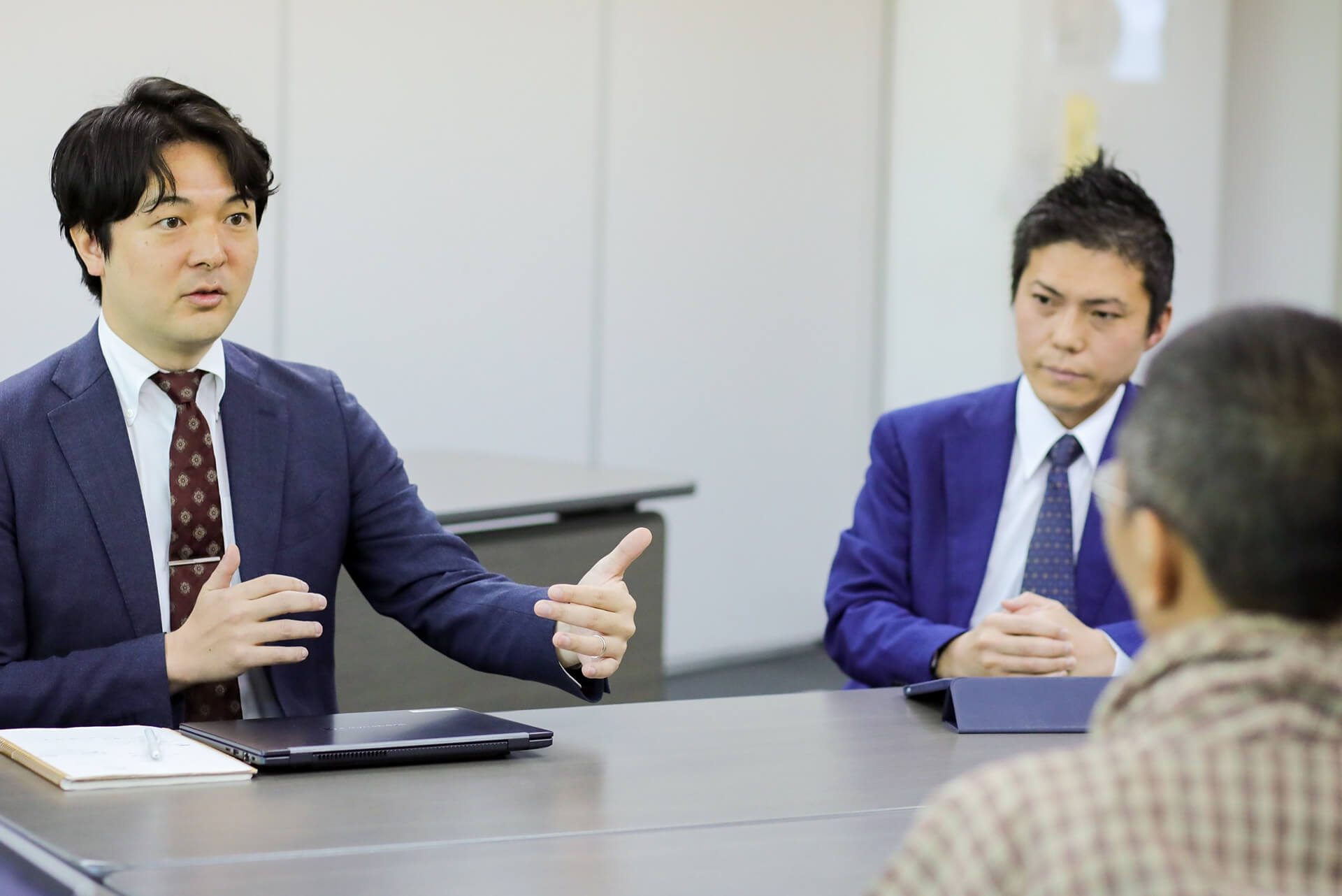
Takuro Asanuma, JICA(left) Shigeyuki Fujii, Accenture Japan Ltd.(right)
Pemba Wangchuk
We would like to immediately start such a smart city initiative in Bhutan. It is a landlocked, mountainous country with a population spread thinly throughout the country. Some people still live in places where they must walk for seven days to reach public services. Digital technology will allow them to receive the same services regardless of their location.
Shigeyuki Fujii
Aizuwakamatsu is like Bhutan. It is an inland region surrounded by mountains, so we believe there are similarities.
Jigme Tenzing
Bhutan is fortunate to have a leader, our King, that the people truly trust. Under the leadership of our King, who always puts the happiness of the people first, we will promote a digital society.
In February 2023, we launched a new National Digital ID System (NDI). Unlike in other countries, the National Digital ID System is a self-sovereign decentralized digital Identity. The self-sovereign National digital identity is first of its kind in the world. To this effect, we are in the process of introducing a National Digital Identity bill in the Parliament. The Bill entails setting up a framework for its national digital ID system that will allow all its citizens to access digital services through verifiable identity credentials that they have full control over and can decide who to share it with without requiring access to third party databases.
This authentication service can also be used by businesses as well as individuals to manage ID information. It allows users to manage their own data, such as health and tax information, and choose with whom it can be shared. Likewise, through the use of such services we are hoping that ePassport public services will be improved drastically.
The Royal Government of Bhutan is taking all these initiatives to create a digitally empowered safe society in which everyone can achieve happiness by improving the quality of data and services, while ensuring the people’s safety. We hope that many partners with digital technology will join us in building safe digital ecosystems for everyone.
Takuro Asanuma
JICA will proceed with this project in order to meet Bhutan's expectations. Let's work together to attract many partners to help realize the digital society that Bhutan deserves.

JICA DXLab projects
- CASE STUDIES 5 Satellite Data Used to Predict the Future of the Earth's Environment
- CASE STUDIES 4 Passion for Change! Poverty Reduction through a Unique Financial System
- CASE STUDIES 3 An Innovative Solution to the Global Water Crisis
- CASE STUDIES 2 From Kagawa, Saving Mothers and Children in Asia
- CASE STUDIES 1 A Revolution for a Billion People - Agri-tech Challenges in India
- DX Lab 1 Using AI to Detect Elephants Early and Promote Coexistence with Humans
- INTERVIEWS 3 Supporting Startups Aiming for Social Innovation in Developing Countries through Google's Accelerator Program
- INTERVIEWS 1 Roundtable: Telemedicine Startup × VC × JICA




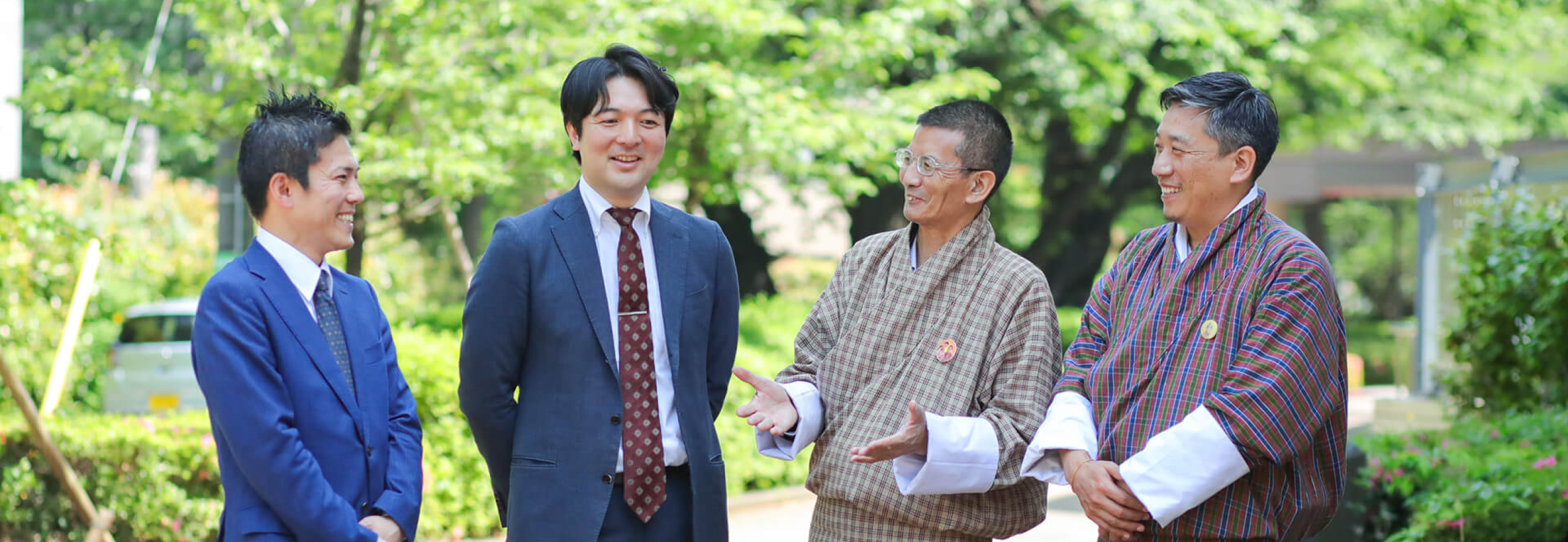

scroll